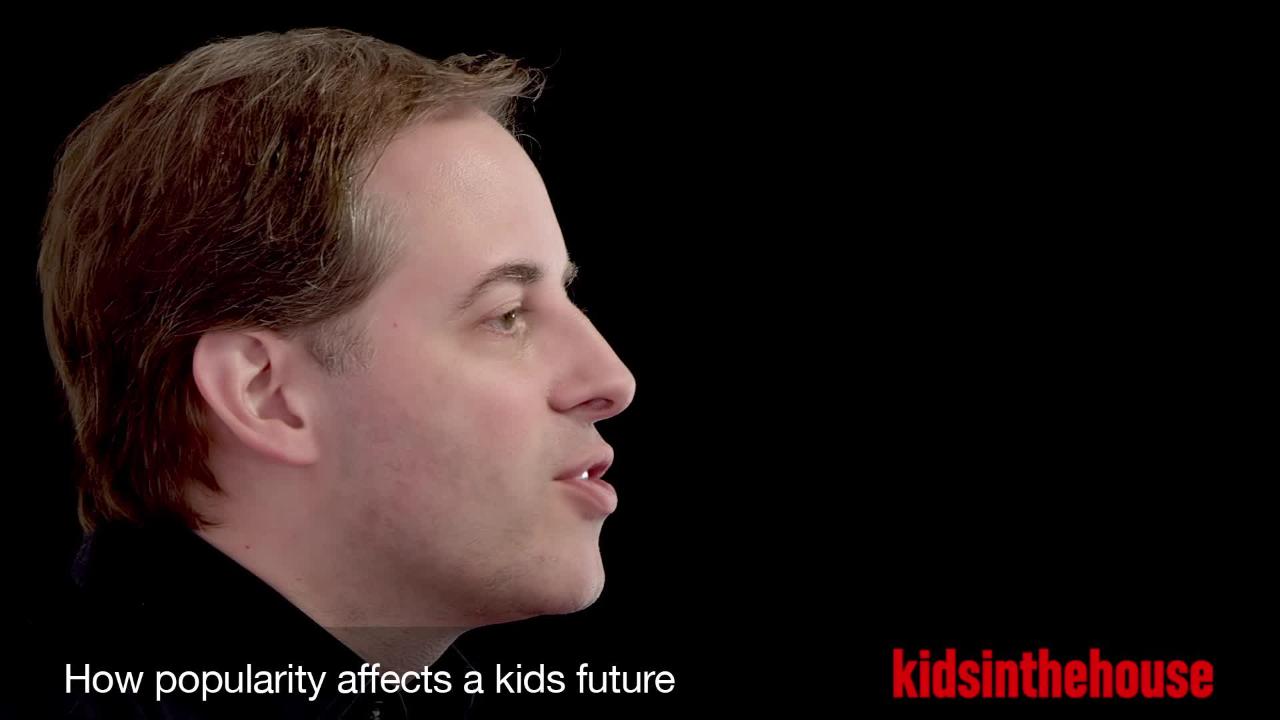How popularity affects a kids future.
- There's a lot of research that tells us that the way that we experience those formative peer relationships when we're young provides a template, kind of a lens or a bias that influences the way we see social interactions as we grow up. So the kid that was very popular actually is seeing the world as a place where everyone is being positive towards them and friendly, and it actually can lead to a blind spot. Folks who are popular grow up to see the world as a little rosier than it might actually be. On the flip side, those who are rejected often see the world as a hostile place. They spend more time attending to hostile cues in their environment that make them, again, feel that they're at risk of being rejected. On the one hand, it actually makes those folks a little helpful if you're looking for a way of perceiving possible threat, but of course it's also a very sad way to live if someone who is unpopular spends the rest of their life seeing the world as a place where they're about to be rejected at any point.
According to Mitch Prinstein, the way that we experience those formative peer relationships when we're young, influences the way we see social interactions in the future.
Related Videos
Transcript
Expert Bio
More from Expert
Mitch Prinstein, Ph.DProfessor of Psychology and Neuroscience
Mitch Prinstein, Ph.D. is a husband, a father, board certified in clinical child and adolescent psychology, and serves as the John Van Seters Distinguished Professor of Psychology and Neuroscience, and the Director of Clinical Psychology at the University of North Carolina at Chapel Hill.Mitch’s Peer Relations Lab has been conducting research on popularity and peer relations for almost 20 years, and has been funded by the National Institute of Mental Health, the National Institute of Child and Human Development, and several private foundations, resulting in over 100 scientific works, including a slew of scientific journal articles, book chapters, a set of encyclopedias on adolescent development, and even a textbook on the field of clinical psychology.Mitch is deeply committed to science and training in clinical psychology, having served as President of the Society for a Science of Clinical Psychology and the Society of Clinical Child and Adolescent Psychology, the Editor-in-Chief of the Journal of Clinical Child and Adolescent Psychology, and on the boards of the American Psychological Association, the Council of University Directors of Clinical Psychology, and publication board of the Association of Behavioral and Cognitive Therapies.He and his research have been featured in The New York Times, The Wall Street Journal, National Public Radio, the Los Angeles Times, CNN, U.S. News & World Report, Time magazine, New York magazine, Newsweek, Reuters, Family Circle, Real Simple, and elsewhere.




 GET ACCESS TO ALL PREMIUM CONTENT WITH NO ADS FOR $4.99/MONTH
GET ACCESS TO ALL PREMIUM CONTENT WITH NO ADS FOR $4.99/MONTH




Login or Register to view and post comments